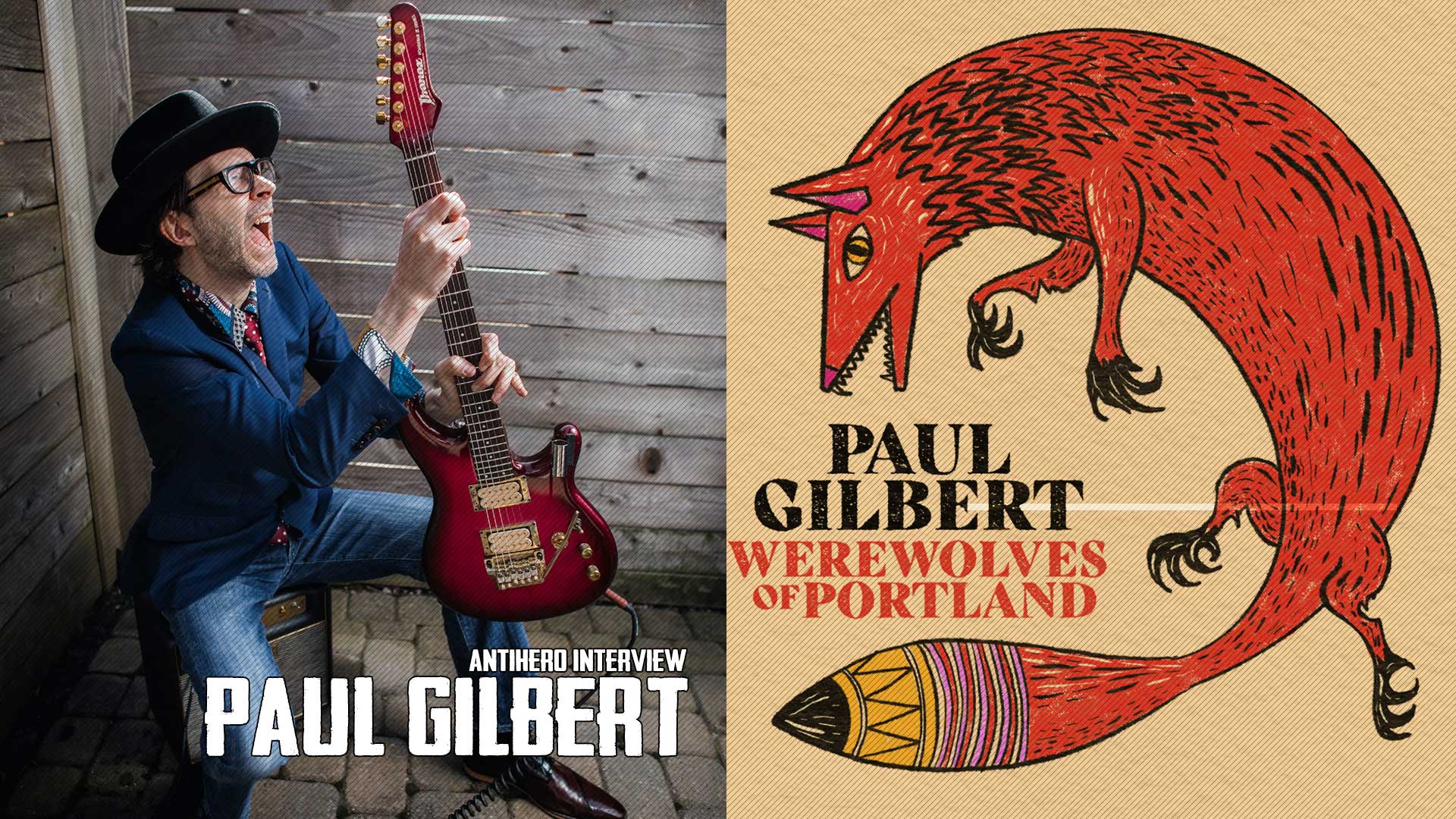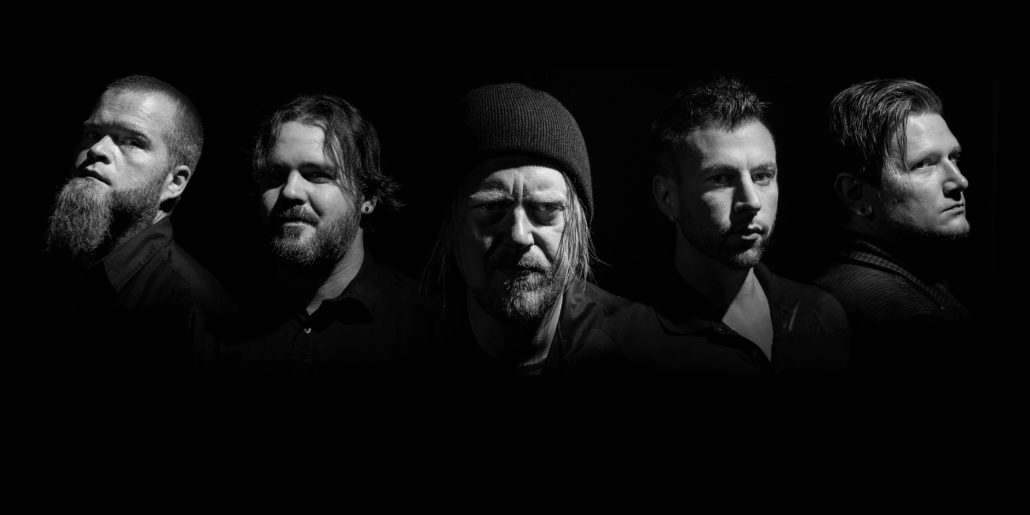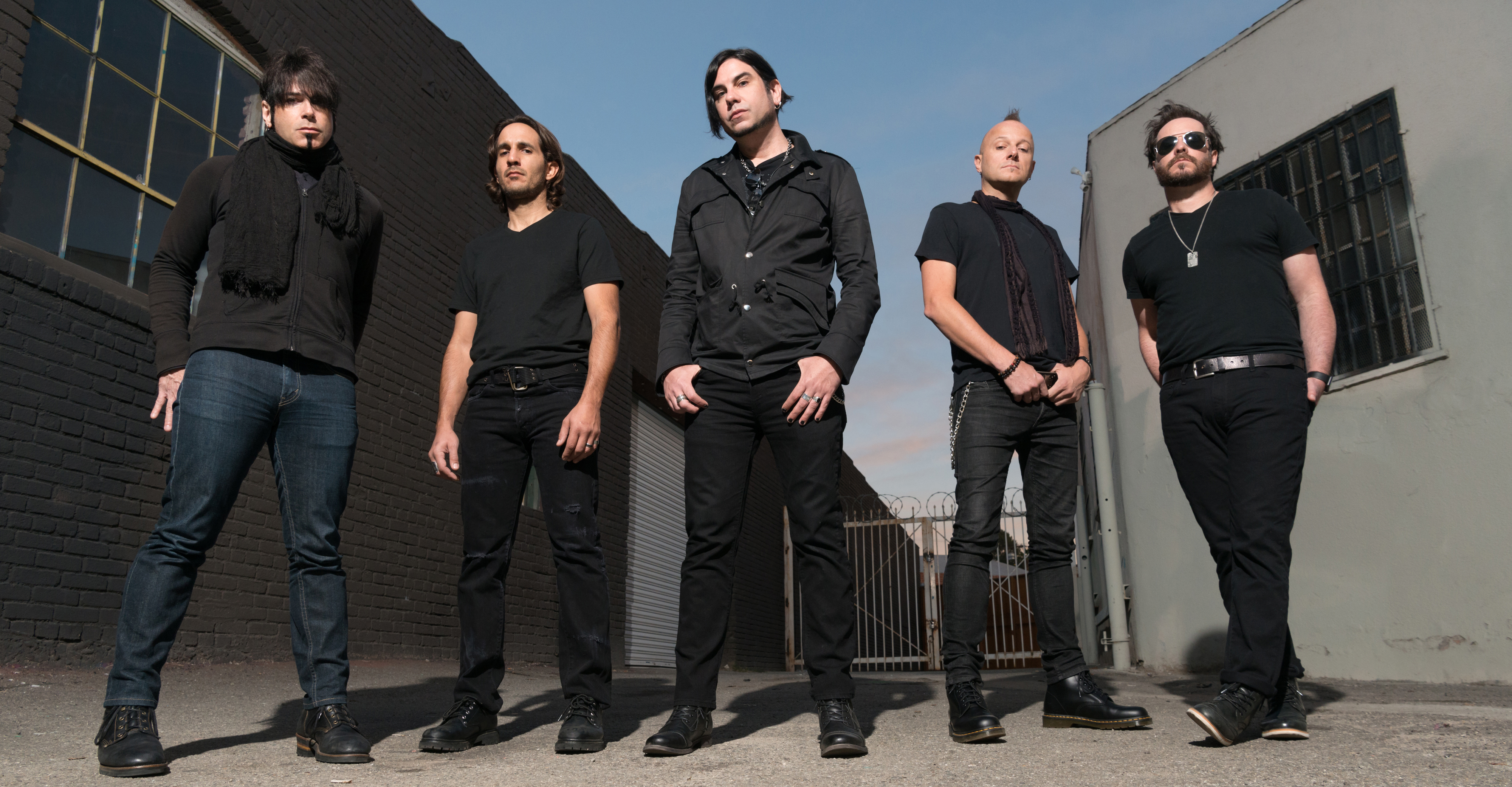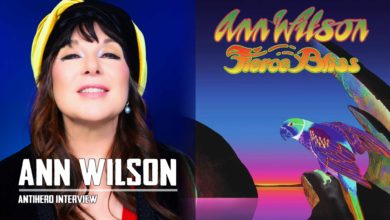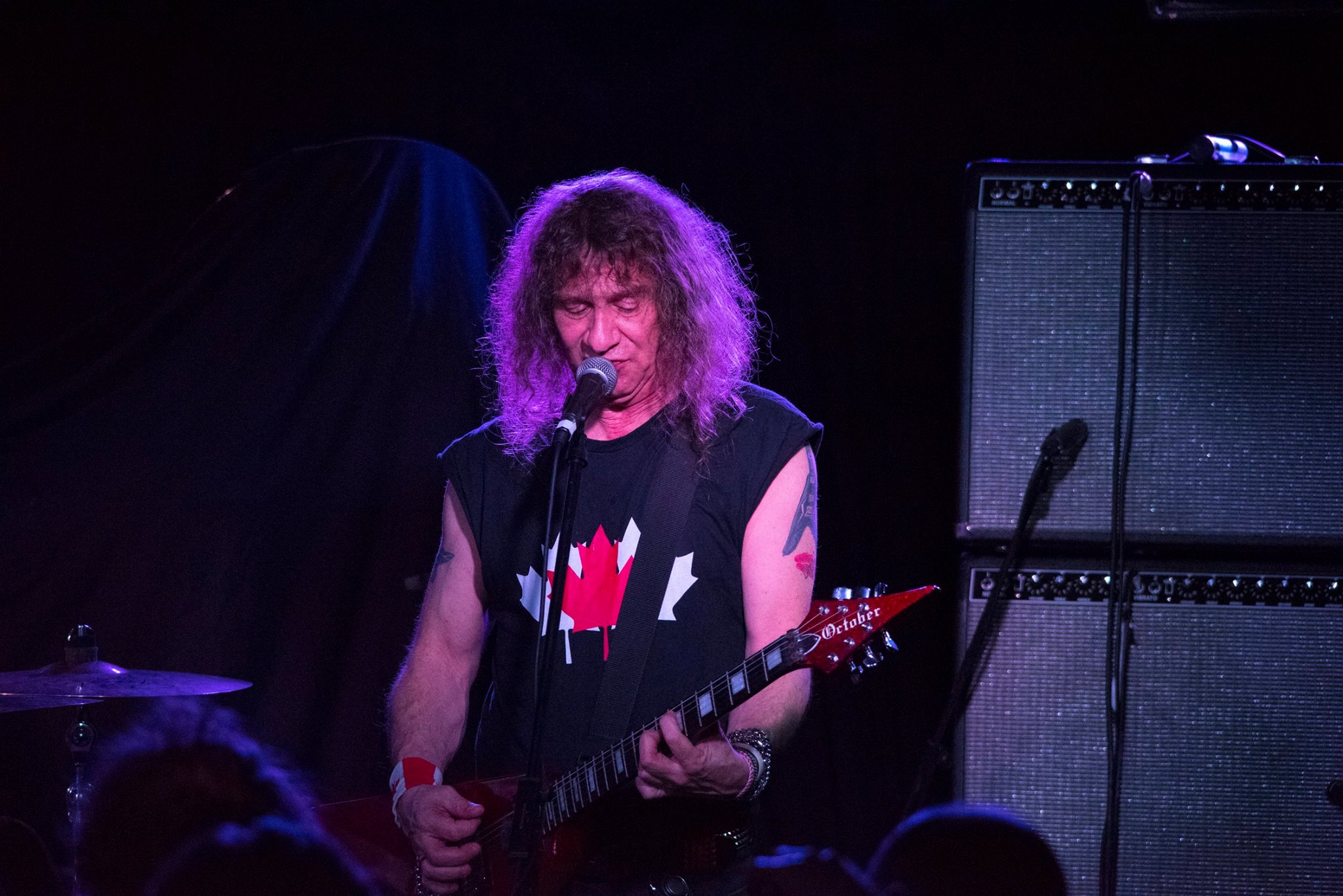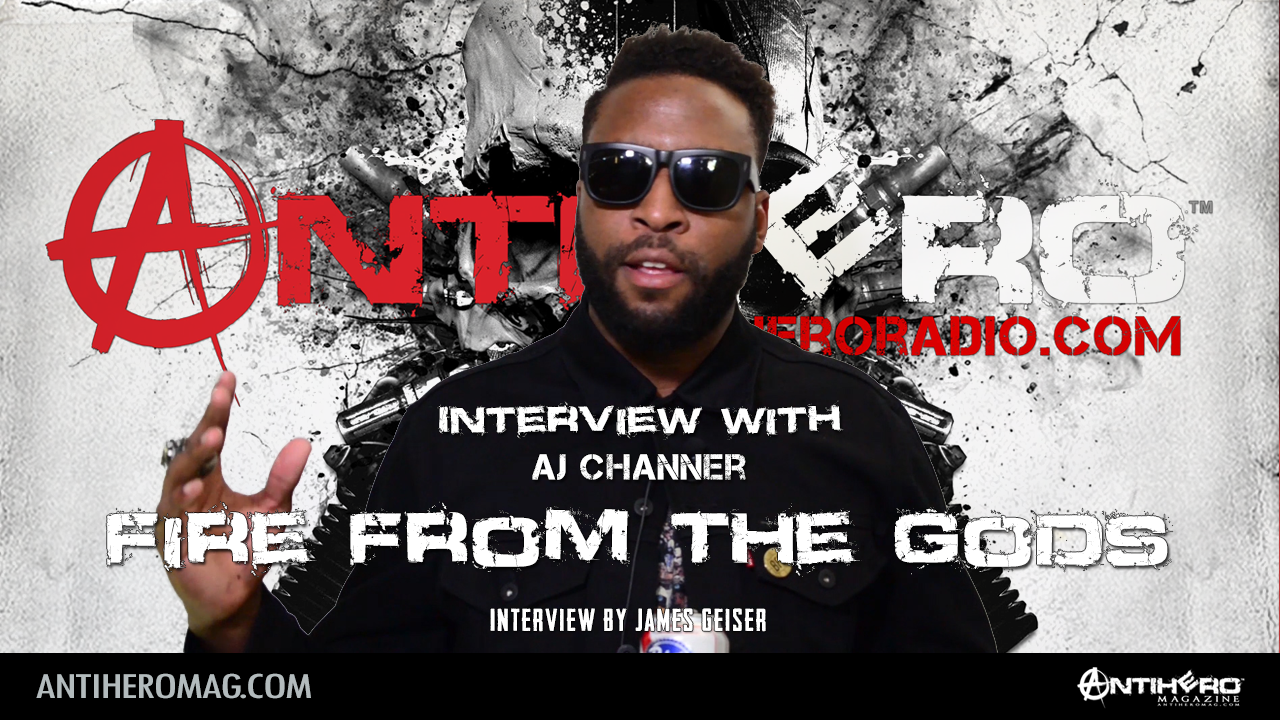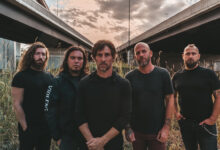PAUL GILBERT RELEASES NEW STUDIO ALBUM
“WEREWOLVES OF PORTLAND” – OUT ON JUNE 4, 2021
Available on CD, red vinyl and digitally – Pre-order now!
“Werewolves of Portland” is guitarist extraordinaire Paul Gilbert‘s 16th solo album, and it will be out on Mascot Label Group / The Players Club.
With the international lockdown putting the world on hold, Paul decided to play all the instruments on the album himself: drums (except for ONE snare roll), keyboards, bass, and of course guitar.
As with Paul’s previous album Behold Electric Guitar, the inspiration for the songs did not come from the guitar, but from writing lyrics and singing melodies. Paul explains: “The process of writing lyrics, then melody, then guitar, then backing it all up with the other instruments is a wonderful discovery that really started coming together for me on ‘Behold Electric Guitar’.” The lyrics are even printed in the booklet, so you can sing along to Paul’s guitar.
I had the opportunity to chat to Paul about his new solo album release.
ANTIHERO: How has the last year and a half been for you, both personally and professionally?
Paul Gilbert: Well, I think for everybody, including me, it’s been a very unusual time, but the good things that come to mind are I’m really appreciative that I had an online guitar school already set up and already rolling. I’ve been doing that since about 2012 and that really saved me in terms of just, my brain. I still had a job, still had a way to connect to people with music and that was just, that was wonderful. So I’m glad I had school and I had to rethink how to do my record because originally I was going to do it with a live band. And I ended up playing all the instruments myself, which is, the other thing that saved me maybe was playing drums because I got some exercise. In terms of music, that’s how I got through it.
ANTIHERO: Is this the first solo album that is actually solo? Is this the first solo album that you played all the instruments on?
Paul Gilbert: I think it is. I tried to do that on my very first solo album back in the nineties called King of Clubs. But that was before Pro Tools, so it was harder to do drum repair. I’m a guy. I’m a guitar player primarily so for drumming, sometimes I’ll rush a kick drum a little bit or rush the snare and not in a good way, and with Pro Tools, it’s really easy to fix that. So those little errors of time, I can go through with the engineer and in an hour, we can get the whole song fixed. Whereas before I was recording with Eight Apps and I’d play it and I’d listen to it back, and there’s really no way to do that kind of editing. So, I just ended up having to hire a drummer to do that record, but now thanks to Pro Tools, I can be a drummer.
ANTIHERO: How is it recorded? Do you have ideas before you go into the studio, or do you just purely create in the studio?
Paul Gilbert: Well, I didn’t have time to make demos, so I would have an idea of the melody, the arrangement sort of, and then I’d come in and we’d make a click track, so I could play the drums along with it. And I would just do like a rough rhythm guitar to get a sense of how the arrangement was working and almost always, I would make a couple of changes. After I heard just a click, guitar, and maybe a melody, I’d listen to it and go, “Okay, well that’s close, but we need to double the chorus or shorten the solo,” or something. And then after that change, we would usually be pretty good and then we could go in and start overdubbing with the click.
ANTIHERO: I was a bit surprised, I read that you actually put lyrics. Lyrics come first to you before you create the music.
Paul Gilbert: That’s a lot easier. It’s kind of fun, you get a lyric and then you try to figure out the way to make it into a melody and there’s almost like a logical checklist you can go through. One of the biggest ones is like, where does it start? Are you going to start the melody right on the downbeat, or is it going to come in before the end of three, or is it going to start on two? And you try it. You say, “Okay, I’m going to start my melody on two.” So, let’s say my lyric is going to be, “It’s 10:10 in the morning,” so that’s my lyric. And then I have to decide, is it straight or is it shuffle? And then maybe I’ll just slip just saying, “At 10:10 in the morning,” that’s a shuffle. “At 10:10 in the night.” And then… I’ve already got something.
So that one, one and two and three and four, it’s 10. So that would start something like the end of four. One and two and three and four, or whatever. So, I’m anticipating the downbeat a little bit and so that’s the first thing that came to me. But before I stick with that, I might go, “Well, we’ll try a couple other things. Try coming in on two.” Like, one, two, and three and four and one. Really, 10 really wants to be on the downbeat. I don’t know if I can even switch it around.
But I would play with it like that just to hear what it sounds like. Sort of force myself to try some different rhythmic phrasings of it and then as I’m doing that, melodies will just come to me. And then the other trick is… And this is all stuff you do, I mean, in the perfect world, you wake up in the morning and the perfect song has already formed and finished in your head.
Paul McCartney always talks about, “Woke up one morning and yesterday,” and the whole song is finished. You might get three or four of those in your life but the rest of the stuff you’ve got to work for a little bit. And so, it’s helpful to have these crafty kinds of things. And the other one is, you get your phrase, whatever it is, and then you repeat it and then after you do it twice, then the third one’s got to be something else. So, it’s like you say the phrase, you’d say it again, and then you change it. It can be related but you have to change. If you repeat it three times, it’s just getting monotonous.
And the second one could be a little bit different. So, if I go, “10:10 in the morning. It’s 10:10 in the night,” and then the third one (singing) “It’s going to feel all right.” And then you got a thing and then that becomes a bigger chunk and then you can repeat that once, you have two of them, and then the third one’s got to be different. So, you can have it on a micro-level or a macro level and that kind of structure helps for the times when the genius isn’t flowing and you just got to build something.
ANTIHERO: Were you not tempted to maybe sing on a couple of tracks?
Paul Gilbert: Was I tempted to sing?
ANTIHERO: Yeah. Given that the tracks originally were lyrics?
Paul Gilbert: Well, not while I was doing it because the only time I’m really tempted to sing now, is usually after the song is done if I go back and sing in an octave lower because then my voice isn’t totally, it’s not like a total struggle. So, for example, a song like “Meaningful”, which I was writing in a higher range. I wrote like. So that’s (singing). I’m already up in my Mickey Mouse range. But if I sing an octave lower, (singing).
That might be alright but it’s just the quality of singing in that range is that wasn’t how I heard the song. That wasn’t the initial inspiration. So that sort of comes second hand and it’s not… I feel like people need to hear what I’m hearing in my head and the higher octave usually can.
ANTIHERO: And of course, you brought out a video, “Argument About Pie”, which illustrates a quite amusing, non-serious side of you. I mean, I always assumed you were a very introverted, serious musician, but this illustrates a comedic side.
Paul Gilbert: Well, there’s always been that. I don’t really set out thinking, “Okay, I’m going to be goofy,” at all. But I think maybe where it started was, I was a big Van Halen fan and not just Eddie, but the whole band had such a sense of joy and fun and it was different than the Ritchie Blackmore kind of darkness.
And man, I love Deep Purple and Rainbow and the music that Richie made as well but for whatever reason, I always felt like I just put on all black leather and just frowned and sang about dragons. If I had two things that would work. If I had hair that just naturally grew the way it did in 1982 and if I had a singer that could really convincingly do that because, I mean, I love playing like that. The Rainbow Rising record, man, I love that album. And if I had to … in the band and we can just play that stuff all day, I’d be totally happy, that’d be… But it was always hard to find… There’s not a lot of Ronnie Dio’s in the world. That’s a rare commodity, both in terms of voice and in terms of that metal philosophy. And my hair doesn’t grow like that anymore.
ANTIHERO: Outside of Mr Big, you have collaborated with a diverse range of artists Todd Rundgren, Bowling for Soup, to MC Lars and Glen Hughes. Which other artists would you still like to create music with?
Paul Gilbert: Yes, I’ve always love Vinny’s drumming, so he always comes to mind. I’m excited to jam with Eric Gales at my Great Guitar Escape camp coming up in July. Really, I like anybody who has spent some time with blues. It would be amazing to jam some blues with Angus Young.
ANTIHERO: I feel that songs only come alive when they are performed before a live audience and they gain their wings so to speak. Do you have any plans for playing your new solo material either in selected shows or on a tour?
Paul Gilbert: I’ll be playing some of my new songs at the Great Guitar Escape camp. The songs are very demanding, so I’m a little worried about it! But that will make me practice. On the album, I could overdub piano and rhythm guitar, and then play the melody on top. For my camp, I just have bass and drums, so I’ve somehow got to squeeze all the chords and melodies into one guitar performance.
ANTIHERO: Your music over the years has dipped into various musical styles and genres but is there a fresh challenge that you would like to tackle musically- maybe to record a complete album in a style that you are not known for?
Paul Gilbert: Jazz chord changes have been looming on the horizon ever since I learned about them when I went to music school. I’ve learned a lot about blues in the last 10 years or so, and that’s a great doorway into jazz. One of the things I learned is that I need to be able to HEAR what I’m playing in my head, even without a guitar. So, learning to play jazz is just as much ear training, as it is learning the notes on the neck. I need to put the melodies in my head, and then match them up to the guitar. This takes time and listening. When the cake is baked, I’ll let everyone have a taste!
ANTIHERO: Animals and creatures have been a part of your musical journey for many years. From flying dogs, a herd of turtles, a snake that just bit your toe, culminating in the 35-song animal medley. Do you actually have any pets/ animals of your own? Any animal experiences in your life? If you could possibly be an animal in a future life, what would you choose to come back as, and why?
Paul Gilbert: I have a cat. She often appears in my Instagram posts. She is really soft, but if I pet her for more than 5 seconds, she gets angry. I grew up with lots of animals. I even had a pet iguana when I was in first grade. If I could come back as an animal? Many come to mind. A dimetrodon, an okapi, a Greenland shark, a tardigrade, and of course, a honey badger.
ANTIHERO: You have done many interviews over the years but if the roles were reversed and you can be the interviewer who would you like to interview. A personal hero or inspiration maybe not even a musician.
Paul Gilbert: I have had the honor of interviewing some of my heroes. I’ve interviewed Todd Rundgren, Angus and Malcolm Young, and Robin Trower. It would be cool to interview Burt Bacharach, Bret Weinstein, Gary Larson, or anyone who has done a lot of teaching.

